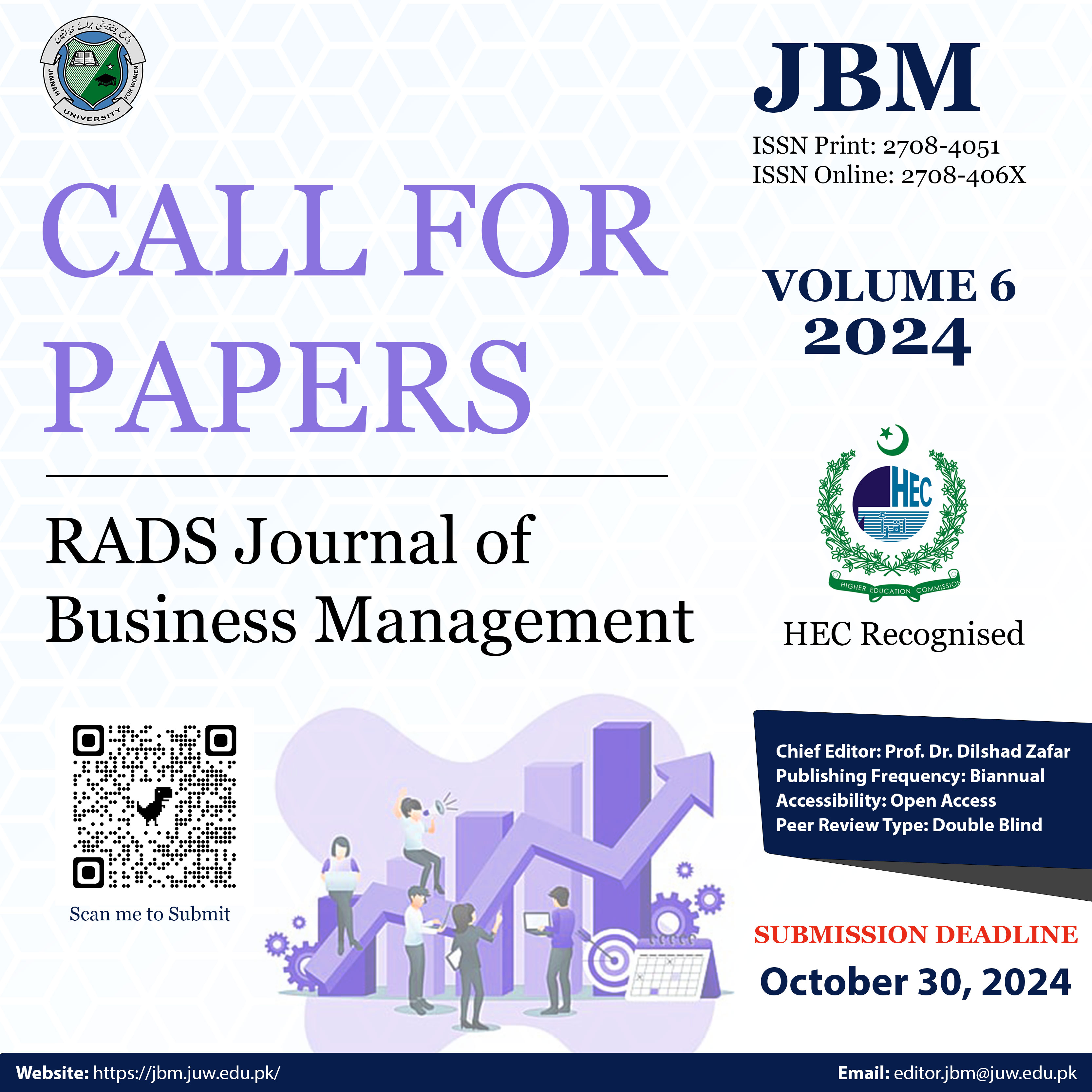Effect of Perceived Risk on Behavioral Loyalty in Online Shopping: Mediating Effect of Trust
Abstract
There is a growing concern about trust in online shopping behavior. This study investigated the effect of perceived risk on behavioral loyalty and the mediating role of trust in online shopping. The study consists of four hypotheses based on literature. The population of the study includes business students from all universities/institutes in the Peshawar region who have already experienced online shopping. Students were selected as a unit of analysis because different scholars considered them active and the main users of online shopping. To test hypothesized relationships, an online survey was conducted by collecting data from 351 university students consisting of three prime institutes/universities in the Peshawar district, both public and semi-government sectors, i.e. the University of Agriculture, the Institute of Management Studies (IMS), the University of Peshawar and the Institute of Management Sciences, Hayatabad, Peshawar. Out of 351 questionnaires, 320 were found to be correct and complete in every aspect. The compiled data were statistically analyzed by SPSS v. 20 using the Baron and Kenny methods. The findings show that perceived risk has a significant impact on consumer behavioral loyalty and trust. Besides, consumer confidence in online shopping significantly mediates the relationship between perceived risk and behavioral loyalty. This study also suggests several managerial implications, such as that vendors should align their e-business strategies to better cater to target market needs and overcome consumer concerns about risk and trust in online shopping.
The author retains the copyright and grants the right of first publication to the journal.





